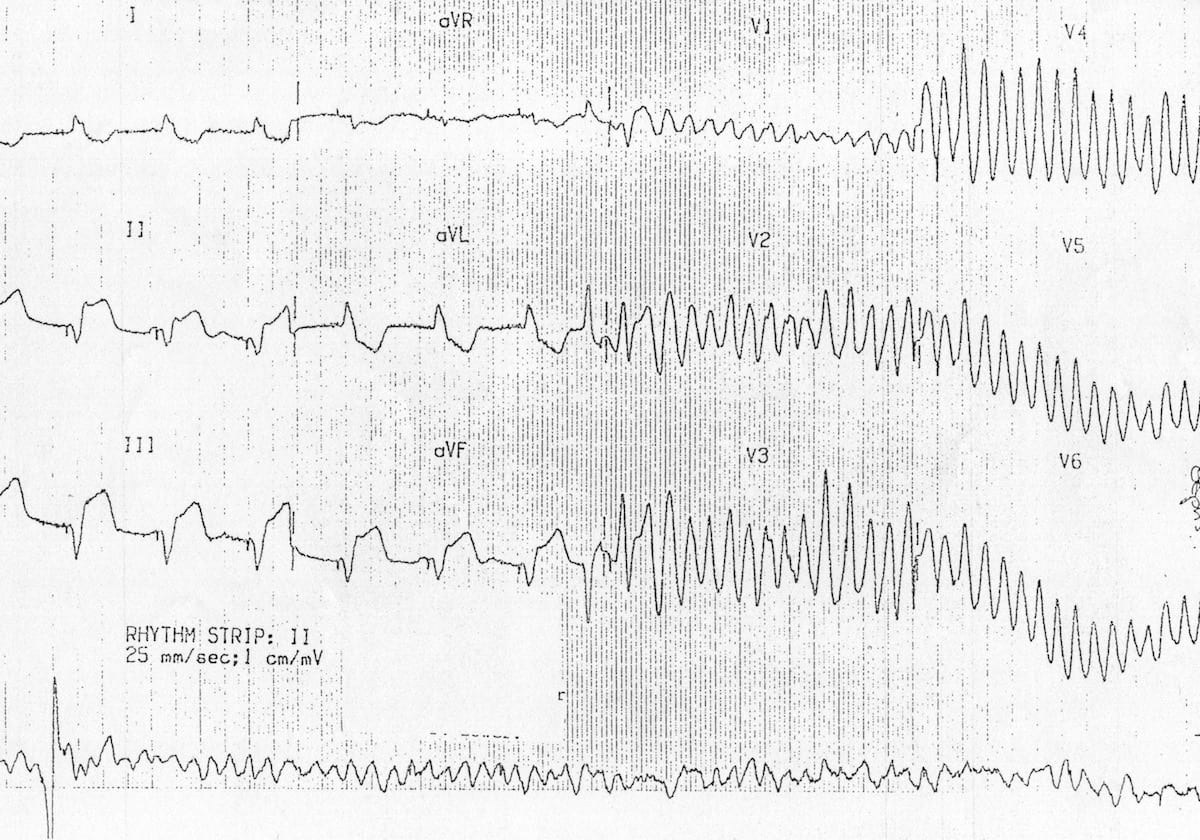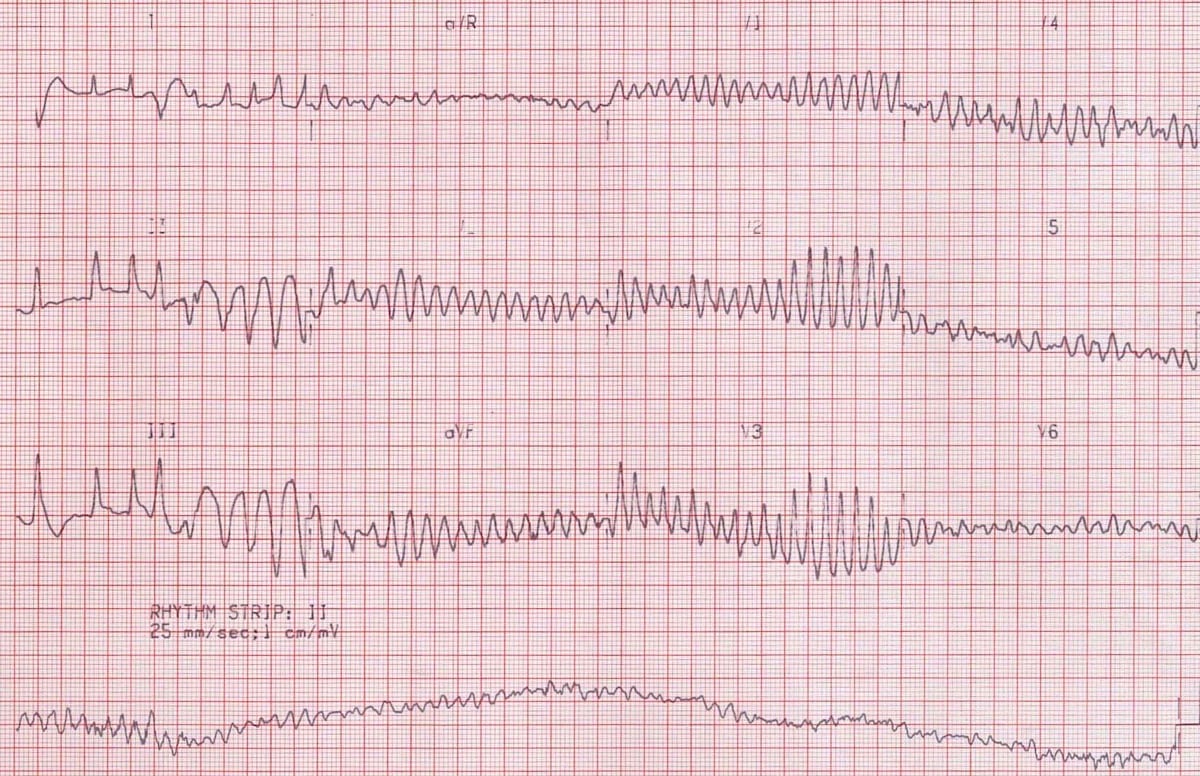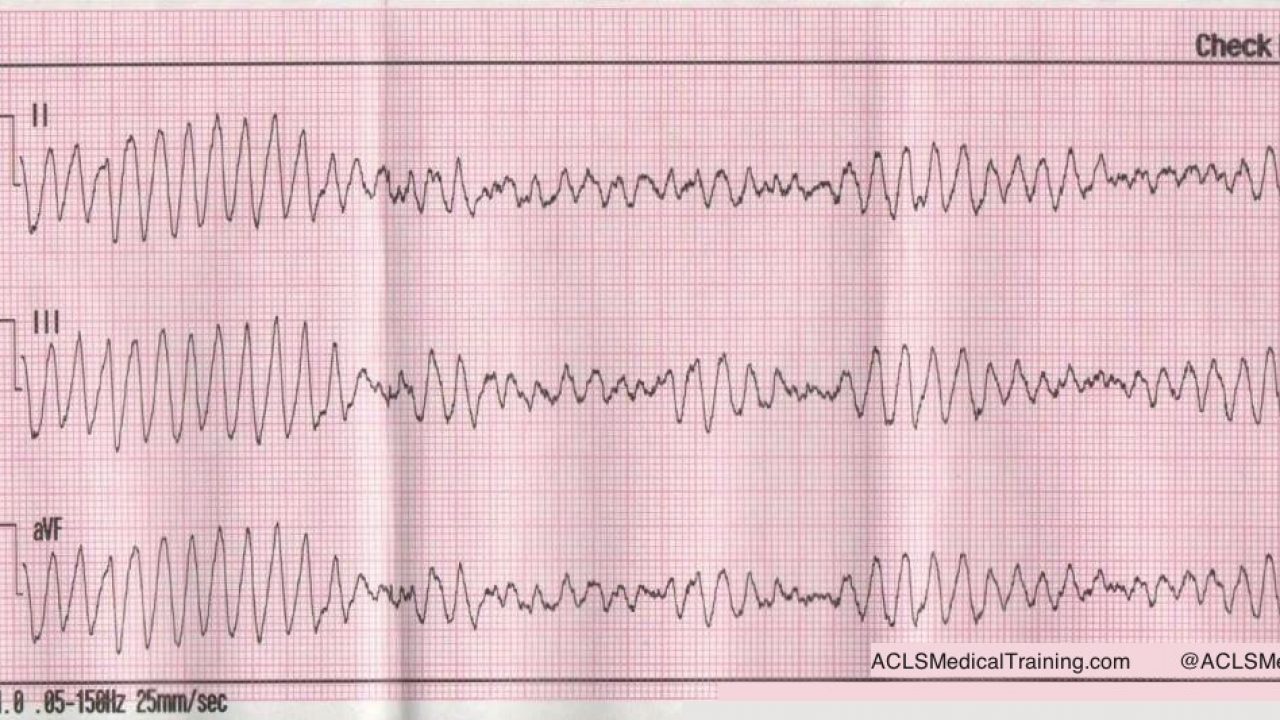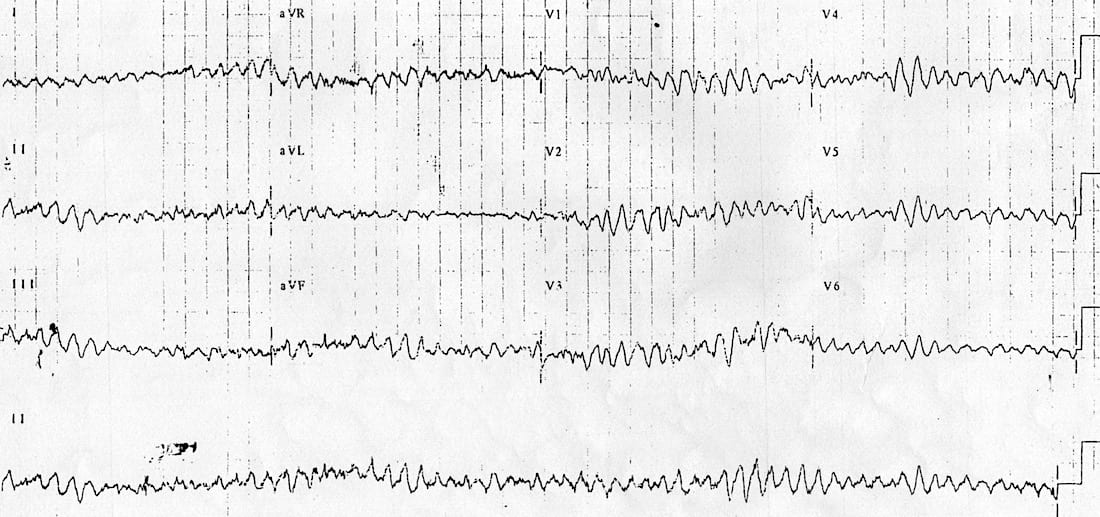Ventricular Fibrillation V Vib
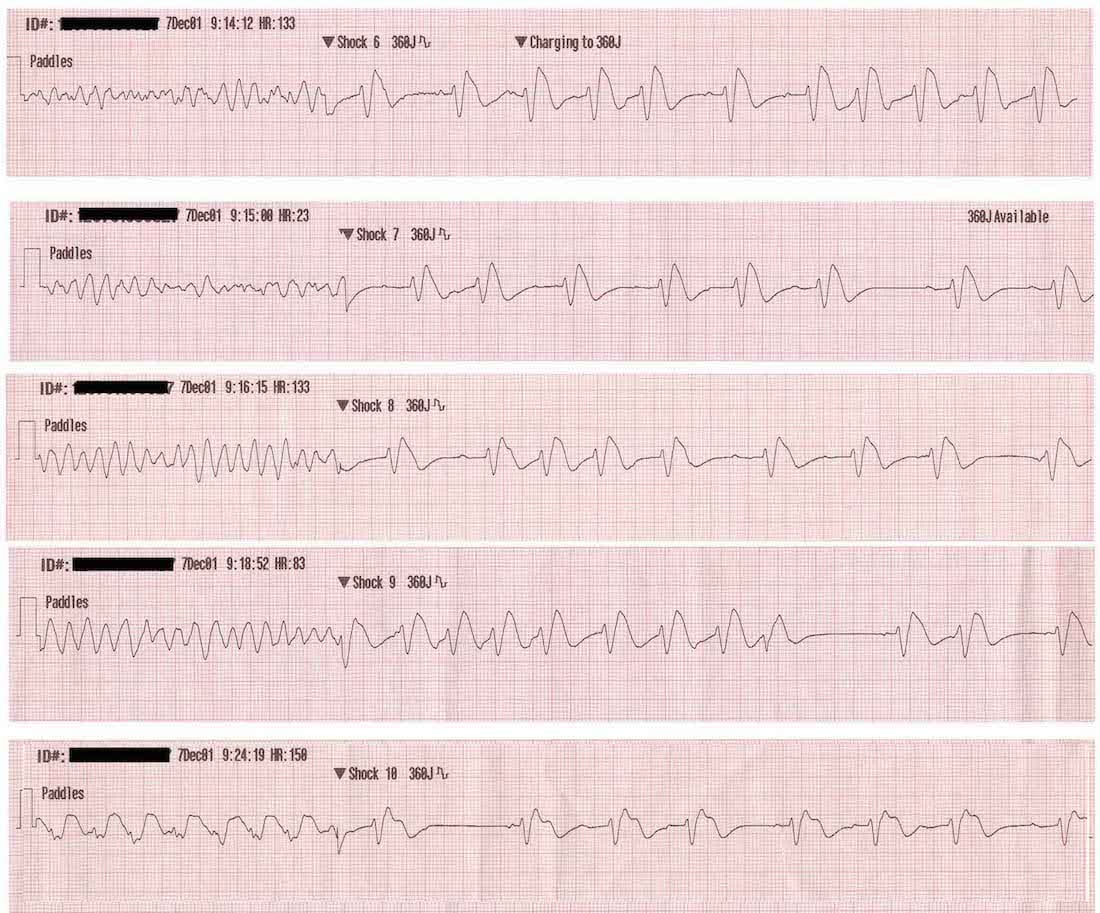
Fine ventricular fibrillation is even more dangerous than coarse ventricular fibrillation because there is even less contractility of the myocardium which results in a smaller amplitude.
Ventricular fibrillation v vib. Disordered electrical activity causes the heart s lower chambers ventricles to quiver or fibrillate instead of contracting or beating normally. Ventricular fibrillation v fib is the worst kind of abnormal heart rhythm and is a form of cardiac arrest. Atrial fibrillation is caused by irregular electrical impulses in the atria and ventricular fibrillation is caused by irregular electrical impulses in the ventricles. Your heart should beat in a regular steady pattern.
Symptoms of both afib and vfib are shortness of breath dizziness nausea and chest pain. Common symptoms of afib are weakness dizziness anxiety and shortness of breath. Ventricular fibrillation v fib or vf is an abnormal heart rhythm in which the ventricles of the heart quiver instead of pumping normally. It involves the pumping of the lower chambers of the heart while atrial fibrillation involves the upper chambers.
Ventricular fibrillation or v fib is considered the most serious cardiac rhythm disturbance. The condition s rapid erratic heartbeats cause the heart to abruptly stop pumping blood to the body. This rapid and irregular electrical activity renders the ventricles unable to contract in a synchronised manner resulting in immediate loss of cardiac output. Atrial fibrillation afib and ventricular fibrillation vfib are both heart conditions that are referred to as arrhythmias.
Ventricular fibrillation with low amplitude waves less than 3 mm is called fine vf. It is a medical emergency. Usually when a person experiences ventricular fibrillation it first. It is due to disorganized electrical activity.
Ventricular fibrillation is initially found in about 10 of. Vfib is a medical emergency with short lived symptoms of sudden collapse and death if not treated immediately. Ventricular fibrillation results in cardiac arrest with loss of consciousness and no pulse. This is followed by death in the absence of treatment.
The ventricles suddenly attempt to contract at rates of up to 500 bpm. Ventricular fibrillation vf is the the most important shockable cardiac arrest rhythm. The longer the body is deprived of blood the greater the risk of damage to your brain and other organs. Atrial fibrillation afib and ventricular fibrillation vfib are both a type of abnormal heart rhythm arrhythmia.




